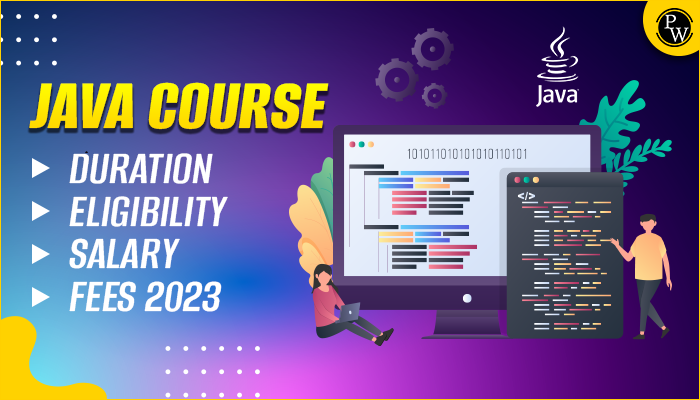How is the Java Platform- It is a highly reliable and effective programming language developed by Sun Microsystems, now known as Oracle. As we know, our system only understands binary or machine language.
Recommended Course
- Decode DSA with C++
- Full Stack Data Science Pro Course
- Java For Cloud Course
- Full Stack Web Development Course
- Data Analytics Course
We need to provide input source code to our computer in binary form so that the computer can easily understand it and perform the operation. The compiler converts human high-level languages into simple machine languages. It acts like a translator and translates the source code into executable code.
You only need to write the code once, and you can run it everywhere or on any device you need. It does that with the help of Java Virtual Machine (JVM). It contributes to the independence of the Java platform. It can be executed in any environment.
What Is Platform Independent Language?
Platform-independent languages, also called Cross Platform Languages, can run on multiple hardware and operating systems without any modification requirements. The combination of software, operating systems, and hardware provides the environment for computer programs to run.
These languages are designed to provide developers with the ability to write the code once and run it on any platform with the required environment. It also helps in reducing maintenance costs and platform-specific coding requirements.
How Is Java Platform Independent?
Let us decode the meaning of Platform independence by diving deep into its origins. As we are all well aware, computers only understand machine languages. They cannot decode high-level human languages and their phrases and sentences. We need to provide them with machine language. Hence, we need to convert the high-level human language into machine language for the computer to execute it easily.
Here comes the role of the compiler. It converts the source code input into machine code, and this process is known as Compilation. Machine-level codes are specific to different platforms. After being converted into machine language, the code is converted into local executable code with a.exe file extension. This code is native to the computer and can only work on that operating system. This native file being generated can not work on Mac, Linux, or other system operating software as their code differs.
Execution Of Java Programs
Let us know how Java does things differently. First of all, Java does not produce native executable code like other compilers. Java generates byte code during its compilation process. It is also referred to as the .class file. Java byte codes are the same as the machine language code, but they do not change with the device. They are the same for every device. The bite code can be executed with the help of Java Virtual Machine, which comes with JDK. JVM works like an interpreter, and it executes the Java bytecode.
The Java interpreter, which takes bytecode as input, interprets it, and converts it into the desired output, is called a Java Virtual Machine. Now, the interpreter’s job is to convert the bytecode into the native executable code, which can run on that device after compilation. It is to be noted that the native code produced by the interpreter can not run in another environment.
With the help of bytecode, native executable codes can be generated on any device using a JVM. But remember, the native code generated will only run on the same operating system. Like the native code of a Mac operating system, it cannot run on Windows or Linux.
Why Is Java Independent?
Java is a platform-independent programming language, as it first takes the source code input and converts it into bytecode. It then uses Java Virtual Machine (JVM) to convert the bytecode into a native executable file by interpreting it. With the help of JVM, code, once written, can be used on any environment or platform provided.
Java Virtual Machine (JVM) Architecture
JVM is responsible for converting the bytecode into the native executable file. It helps to run Java applications. It has a layered structure, which allows it to execute bytecode on different operating systems. It also provides services such as management and security. Some of the important components of the JVM Architecture are given here.
- Class Loader
- JVM Memory
- Execution Engine
- Native method interface
- Native method libraries
JVM is responsible for converting the .java files into the .class files.
Why Is Java Not Completely Platform-independent?
In Java, human language is first converted into bytecode. This bytecode is then converted into machine-level code with the help of a Java Virtual Machine interpreter. It takes the help of the JIT (Just In Time) compiler to convert the code into machine code and then execute the program. Java is platform-independent because of this bytecode, which can run on any operating system. But converting bytecode into machine code requires JVM, which is platform-dependent and is different for different devices.
The Java Virtual Machine is dependent on the type of operating system. It is platform-dependent. Different operating systems have different JVMs. When downloading JVM, you will be asked which operating system you want to download specifically. Windows has a different JVM than a Mac.
Recommended Reads
Data Science Interview Questions and Answers
Data Science Internship Programs
IIT Madras Data Science Course
Features of Java Programming Language
The Java Virtual Machine is a crucial component of the Java programming language. It offers several key features that make the platform powerful for running Java applications.
- Platform-Independence: You only have to write the code once, and then you can execute it anywhere you want.
- Security: Java does not use pointers, which is the main reason for the safer environment it provides. It does not have any interaction with the Operating system during its operation.
- Object-Oriented Programming: Java supports classes, objects, inheritance, polymorphism, abstraction, etc.
- Multithreading: Java can run multiple operations at a time. It supports multithreading, which also provides space optimization and executes multiple tasks at the same time.
- Memory Management: It contains automated garbage collection to reclaim the memory used by objects that are no longer in use.
- Exception Handling: Java provides an automatic exception-handling mechanism to handle and remove errors.
- Dynamic Class Loading: Java also allows dynamic loading of classes during the runtime. It is used to load the .class file.
- Rich Standard Library: The JVM comes with a comprehensive standard library known as the Java API (Application Programming Interface). It provides a wide range of pre-built classes and functions for various programming tasks.
- Native Interface: The JVM supports the Java Native Interface (JNI), which allows Java code to interact with native code written in languages like C and C++. This feature is useful when integrating Java with existing native libraries or system components.
- Monitoring and Profiling: JVMs offer tools and APIs for monitoring and profiling Java applications. Developers can use these tools to analyze and optimize application performance and diagnose issues.
- Dynamic Adaptation: Some JVMs include adaptive optimization techniques that can adjust code execution based on runtime conditions, which helps to improve performance in real-time.
FREQUENTLY ASKED QUESTIONS
Q1. Is the Java platform independent?
Ans: Yes, Java is a platform-independent programming language. It can run on any device.
Q2. What is the use of the Java Virtual Machine?
Ans: Java Virtual Machine converts the bytecode into machine-level code.
Q3. What does platform independence mean?
Ans: Software that functions on various hardware platforms or operating systems is called platform-independent. It is the opposite of platform dependent, which describes software that can only be used with a specific hardware platform or operating system.




